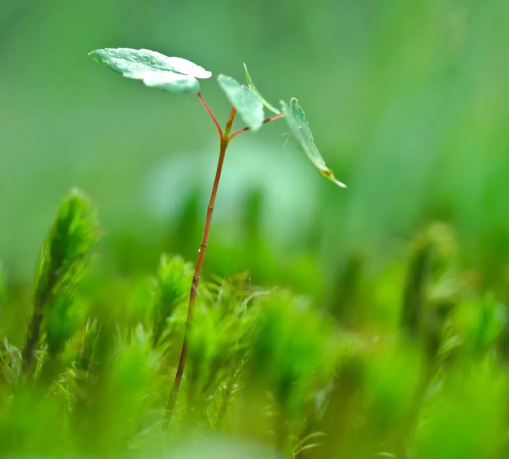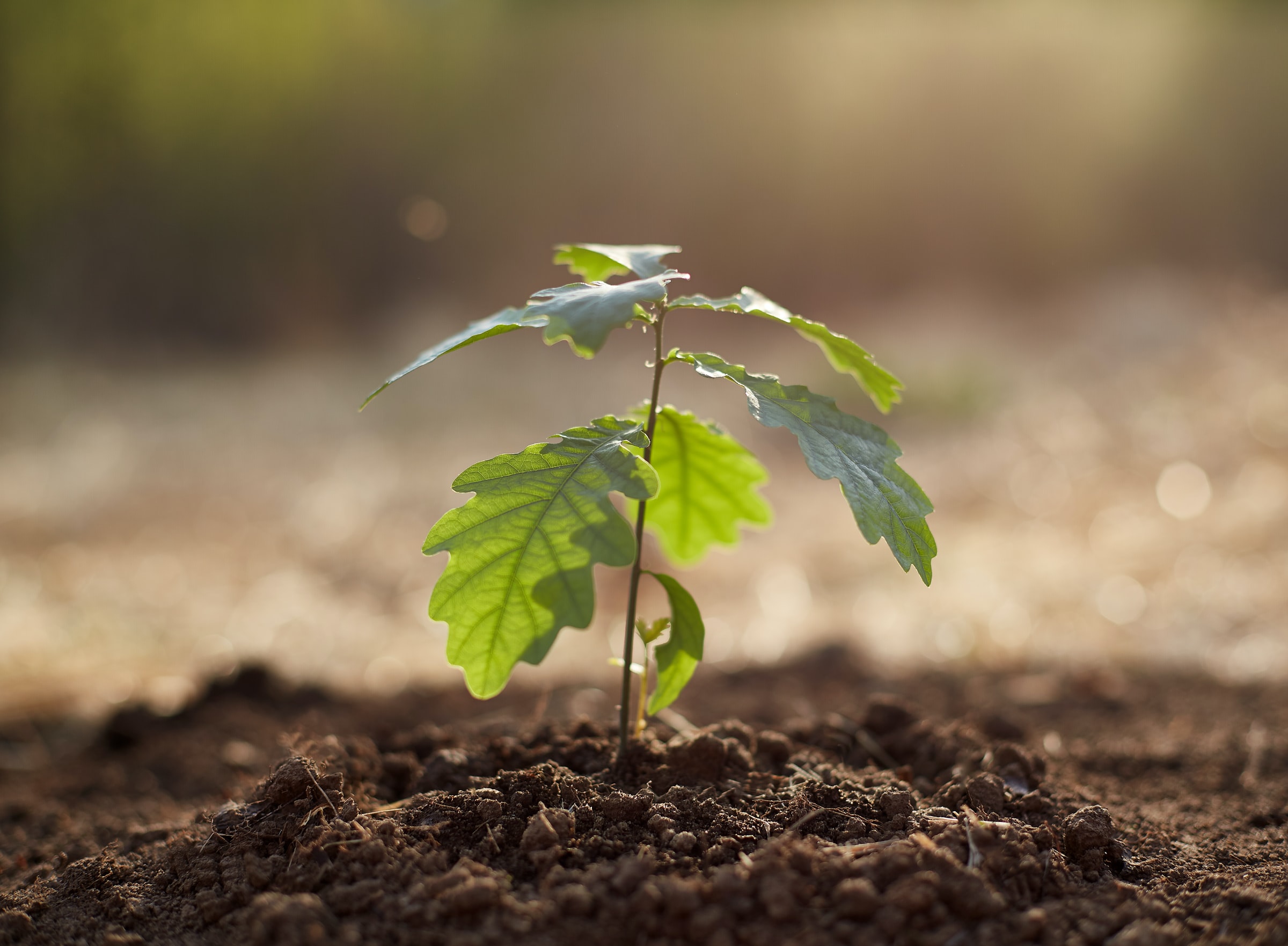Protecting and regenerating 1.5 million hectares of land, forests and oceans by 2030
Pledge by
Unilever
Protecting and regenerating more land than is required to grow the renewable ingredients in Unilever's beauty and personal care products

- Type
- Conserving, Restoring & Growing, Enabling
- This pledge will take place from
- 2021 to beyond 2030
Pledge overview
We made a commitment earlier in 2021 to help protect and regenerate 1.5 million hectares of land, forests and oceans by 2030. This was calculated looking at where we can have the most impact within our extended value chain and it builds on existing work where we are protecting and regenerating nature. The existing work will form a basis as we fully develop our strategy.
Examples of what our strategy will build upon:
Agroforestry in Côte d'Ivoire: Magnum, Unilever's largest ice cream brand in partnership with WWF and IDH is running a forest restoration programme where it will replant around 465,000 native trees in the Cavally region, which is one of the most biodiverse areas in the world.
Landscape work in Indonesia and Malaysia: We have five place-based partnerships where we have been focusing on landscapes and jurisdictions for sourcing programmes that include conservation and restoration interventions. Each landscape programme is in collaboration with multiple partners at a global and local level. These are in Aceh, North Sumatra, Riau and Central Kalimantan in Indonesia, and in Sabah, Malaysia. The types of conservation interventions include; peatland protection, land change, risk and water quality monitoring. There is more detail on our website, for example our programme with WWF in Sabah, Malaysia which involves replanting two wildlife corridors to restore wildlife forest habitats and improve the connectivity between fragmented forest blocks.
Regenerative agriculture in North America and Europe: Regenerating nature: we will drive the uptake of regenerative agricultural practices and contribute to the restoration of degraded landscapes, particularly by supporting programmes that protect natural ecosystems. Work underway includes a programme focused on cover crops and soil health for soy farmers in Iowa, USA. These programmes implement our Regenerative Agriculture Principles, the five priority areas for the Principles are; regenerating soils, protecting water, increasing biodiversity, developing climate solutions, improving farmer livelihoods.
External partners and committed funds: For example, in 2017 we made a commitment to invest US $25 million in the &Green Fund to achieve large-scale deforestation-free agricultural production - all of this will be supported by a Unilever €1 billion Climate & Nature fund
Read more here:
Magnum plants 465,000 trees in Côte d'Ivoire | Magnum UK | Magnum Ice Cream
Sustainable palm oil | Unilever
Working with WWF to restore valuable forest ecosystems | News | Unilever global company website
How we will grow our ingredients in harmony with nature | News | Unilever global company website
Unilever People and Nature Policy
You could argue that soil is more valuable than gold | News | Unilever global company website
Regenerating nature | Unilever
The Unilever regenerative agriculture principles | Unilever
Actions in this pledge
-
Conserving trees and forest landscapes
Supporting actions
- Permanent conservation
- Secure a forest through acquisition or legal agreement to avoid planned or unplanned deforestation or degradation, and/or ensure permanent conservation of land
- Conservation support activities
- Support the operating costs and activities of existing conservation areas, including advocacy for conservation policy
Additional details
We will monitor activities and outputs throughout projects to ensure we can track and report on progress.
Conserving
-
Restoring and growing trees and forest landscapes
Supporting actions
- Assisted natural regeneration
- Actions that support natural regeneration without tree planting, such as Farmer Managed Natural Regeneration, forest soil remediation, exotic species control, disease prevention, and wildfire protection
- Reforestation
- Re-establishment of forest through planting and/or deliberate seeding on land classified as forest, that has been degraded or where trees are unlikely to regenerate naturally
- Agroforestry
- Activities that establish and manage the integration of trees into agricultural landscapes, silvopastoral systems, farming in forests and along forest margins and tree-crop production
Additional details
We will monitor activities and outputs throughout projects to ensure we can track and report on progress.
Restoring & Growing
-
Enabling activities for trees and forest landscapes
Supporting actions
- Sustainable forest management
- Activities that support the stewardship and use of forests (including by local communities and indigenous peoples), to maintain their biological diversity, productivity, and regeneration capacity, as well as their potential to fulfil relevant ecological economic and social functions
- Education and capacity building
- Forest / tree species conservation and restoration education programmes, targeted educational and behaviour change campaigns, training and capacity building, including promotion of local and traditional knowledge and practices
- Data collection, management and technological tools
- Activities that provide data and/or technological tools to support conservation and restoration (e.g. monitoring etc.)
Additional details
We will monitor activities and outputs throughout projects to ensure we can track and report on progress.
Enabling
Our ecologically and socially responsible approach
Our principles and policies that will support this:
In the fight against deforestation, working closely with our suppliers is crucial. They help us get closer to the people who grow our crops, which, in turn, helps ensure they come from sustainable sources.
We believe that the engagement of farmers, smallholder farmers and local people should be the first consideration in any nature protection and restoration work. We focus on enhancing livelihoods through partnerships, training and regenerative practices: Positive interventions: empowering smallholders in our supply chain by supporting livelihood programmes that improve farming operations, increase productivity, assist in diversifying income streams, and enable farmers to have a living income.
Force for good: advocating for the continuous improvement of standards, auditing, and assurance systems so we keep pace with increasing requirements for the protection of natural ecosystems and respect of human rights.
People and Nature Policy: This policy combines our previous Palm Oil and Paper and Board policies into a single document. It covers all our conversion-risk crops (palm oil, soy, paper and board, tea and cocoa) and updates and builds on our previous commitments.
Our four principles for sustainable sourcing Sustainable Agriculture Code and Regenerative Agriculture Principles:
- Protecting natural ecosystems from deforestation and conversion.
- Respecting and promoting human rights
- Transparency and traceability
- Being a force for good for nature and people
Responsible Sourcing Policy: This policy includes criteria which aim to address prevailing and systemic human rights issues in our supply chains. This includes respect for land rights, which are critical for people's food security, and for inclusive social and economic development;
Unilever’s living wage announcement - Unilever commits to help build a more inclusive society | News | Unilever global company website
Our system of accreditation
When we embark on forest restoration work we will set up robust monitoring and evaluation systems and we’ll be engaging external independent verification partners to ensure claims are robust and supported by strong evidence. o Following the introduction of our People and Forests First strategy, we have shifted a significant amount of our sourcing to places where the risk of deforestation is low. In the locations where deforestation risk remains high, we complement our use of certification schemes with other forms of verification.
Read more in our People and Nature Policy: Unilever People and Nature Policy
Our partners
We work with and will work with many different partners to achieve this, we work through coalitions such as the Tropical Forest Alliance, Consumer Goods Forum and One Planet Business for Biodiversity. We work with NGOs such as WWF, Inobu and Conservation International. And of course in collaboration with our suppliers.
You can read more about how Unilever works with suppliers here: How we’re partnering suppliers to build a more equitable society | News | Unilever global company website
Our locations
We are creating a pipeline of restoration opportunities dependent on where our material footprint is.

Our implementation progress
Pledge implementation progress reporting is managed in collaboration with IUCN’s Restoration Barometer, and is required annually from the year following pledge publication.
-
Unilever pledge implementation progress report 2022
not submitted
-
Unilever pledge implementation progress dashboard 2023
not submitted
